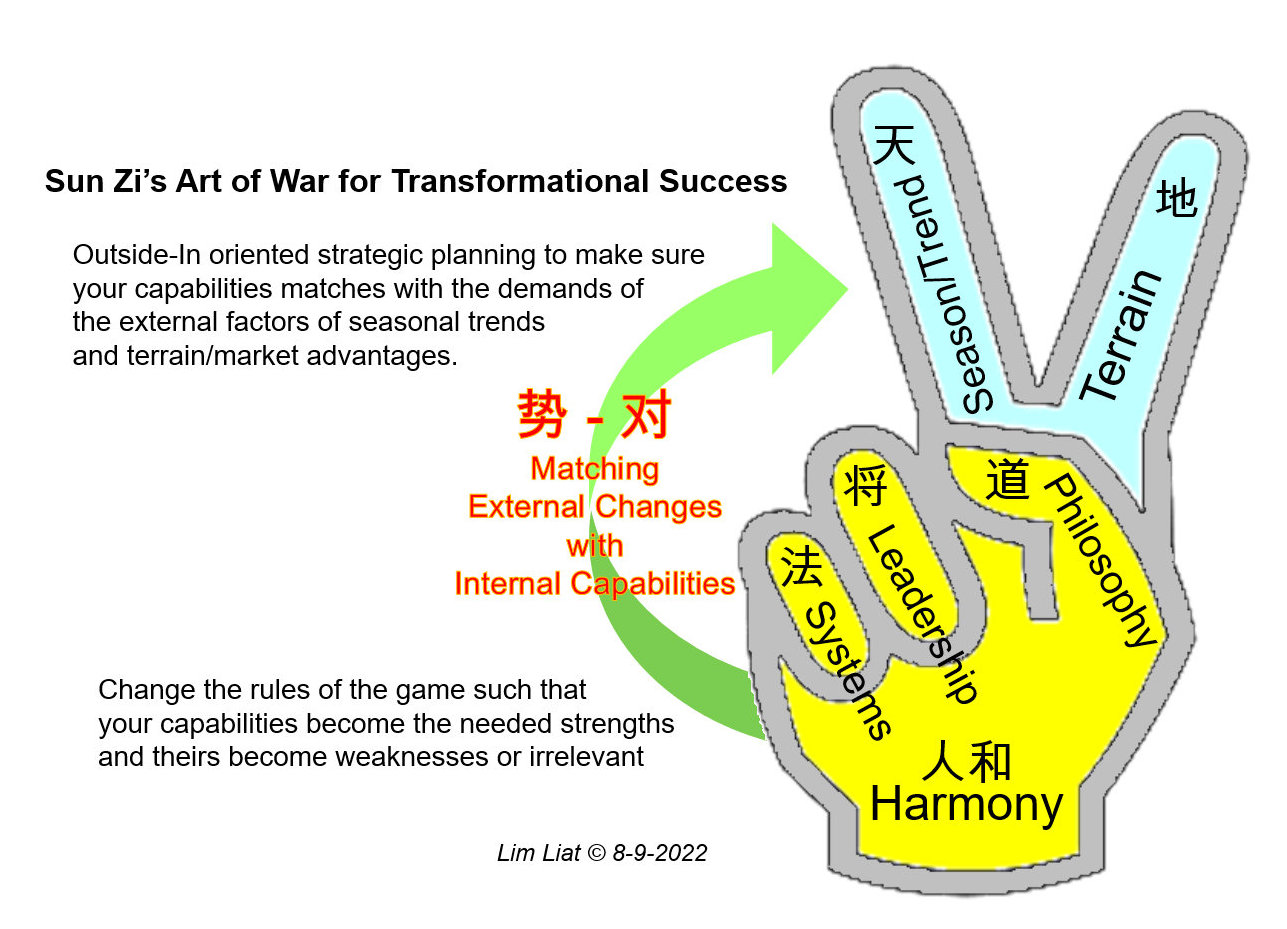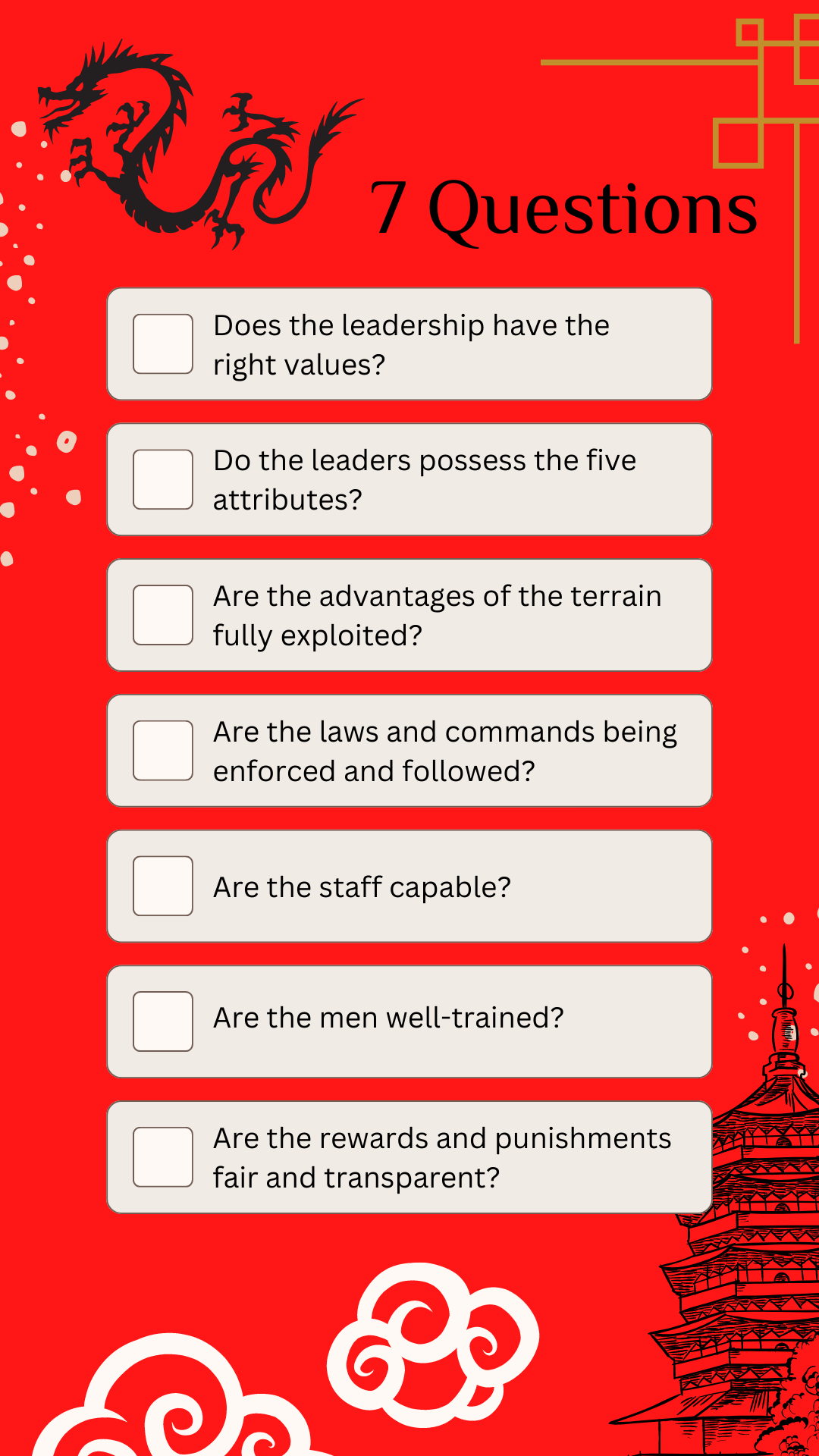It goes without saying that if you’re an entrepreneur or a business leader, you probably have a trusted secret playbook of strategies and tactics you depend on.
But, real talk: no playbook is perfect- sometimes it works great, and other times not.
If history is your thing, you’ll know that when it comes to playbooks, very few come close to Sun Zi’s Art of War, a treatise on warfare strategy written by famed ancient Chinese strategist, Sun Zi.
Written in 500 BCE, it is still widely read and adapted by many business leaders worldwide today.
We understand that time is a limited resource for you busy folks to read over 200 pages of an ancient manuscript. We’ve got you covered.
We speak to Lim Liat, CEO of a consulting and training company with a focus on the fusion of Chinese and Western thinking, BvOtech, to give you a crash course on applying Sun Zi’s principles to your business.
Questions about Sun Zi’s Art of War answered:
- Sun Zi’s Art of War is a warfare guide written by a military strategist. How does this translate into business?
- What are the key principles in Sun Zi’s Art of War?
- How can Sun Zi’s Art of War be used to appraise my business?
- Is Sun Zi’s Art of War a sure-win strategy for business?
Sun Zi’s Art of War is a warfare guide written by a military strategist. How does this translate into business?
Sun Zi’s Art of War is not just about warfare, but also about cultivating the winners’ mindset. It is about how the ordinary person can achieve extraordinary feats. The manuscript teaches us about strategy and execution as a good leader with, a cool head, a passionate heart, intense watchfulness, deep learning, and excellent adaptability.
What are the key principles in Sun Zi’s Art of War?
Sun Zi describes five factors in planning namely, “Philosophy”, “Season”, “Terrain”, ”Leadership”, and lastly “Systems”.

Sun Zi explained that Philosophy (Dao) is the thing that unites people regardless of rank and position. Translating this for business will be the Mission, Vision, and Values of the company.
Season refers to the environment that one is in. In business, this refers to the PESTEL factors- political, economic, social, technological, environmental, and legal, as well as the desires of customers.
The key is learning to read the trends and directions. That way, we can ride the trend rather than go against the trend.
Terrain refers to distance, slope, width, throughway or dead end, and place for living or death. In business, terrains will be your marketplace. This includes your market positioning, path, and distance to reach your customers. Is there anything you can do to serve your customers better?
Leadership represent the “commanders” of your company. Sun Zi tells us that a good commander needs to have five attributes in balance – wisdom, trust, love, bravery, and discipline. All the attributes need to be in balance.
Out of balance, these attributes could mislead a leader. A leader with wisdom alone is a cheat; with trust alone is a fool; with love alone is a weakling; with bravery alone is impulsive, and with discipline alone is cruelty.
Read More: Leadership Qualities: Signs of a Good Leader in Times of Change
Systems describe the organisational structure, know-how, processes, procedures, company laws and policies, command, control, and communications. All should be in alignment to achieve key business objectives.
How can Sun Zi’s Art of War be used to appraise my business?
Sun Zi teaches us that there are seven questions that one needs to ask him or herself in the pursuit of success. You can use the questions to appraise your own company. It is like a health check for you to compare your capabilities against your rivals to ascertain the probability of winning.

First, does the top leadership has the right mission, vision, and values? For example, many organisations today have mission, vision, and values statements that are too abstract to be actionable.
Second, do the leaders have the five attributes of “Philosophy”, “Heaven, “Terrain”, “Commanders” and “Methods” as mentioned earlier?
Third, are the advantages of the terrain fully exploited? As Steve Jobs, the founder of Apple, once said, “I skate to where the puck is going to be, not to where it has been”.
Fourth, are the laws and commands being enforced and followed? Without proper rules and regulations, an organisation will be disorganised and chaotic.
Fifth, are the staff capable? Without capable employees in the company, the business cannot keep up with its competitors.
Sixth, is the staff well-trained? Having the right skill but lacking frequent practice is not enough to achieve success. In addition, there is no use in having policies and laws when enforcement of rewards and punishments is not done.
Seventh, is the rewards and punishments fair and transparent? There is no use in having policies and laws when rewards and punishments are not enforced. Staff that are exemplary should be rewarded and the ones who are not performing should be questioned.
If the rewards and punishments are not fair and transparent, it will also cause suspicion and distrust among your people.
Is Sun Zi’s Art of War a sure-win strategy for business?
With Sun Zi’s advice, we know how to compete. However, we also need to know how to form an alliance. Business today is not just about competing products or services. It is also about the competition in supply chains.
For example, in the case of Apple‘s iPhones versus Android phones, Apple had chosen the proprietary route, while Android is based on more open standards. Android’s supply chain has many more partners than Apple’s, resulting in better economies of scale.
This is the crucial reason for Android becoming the market share leader even though it started two years after the Apple iPhone. Android’s success is all about how Google forged alliances — the Open Handset Alliance against Apple.
So make good use of this “Art of War” inspired health check, but keep an eye on the market and possible alliances you can build. That way, you can ensure your business’s and team’s resilience.
Want to learn more business strategies or hiring tips to expand your team? Register for our monthly newsletters, or continue reading now!















